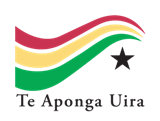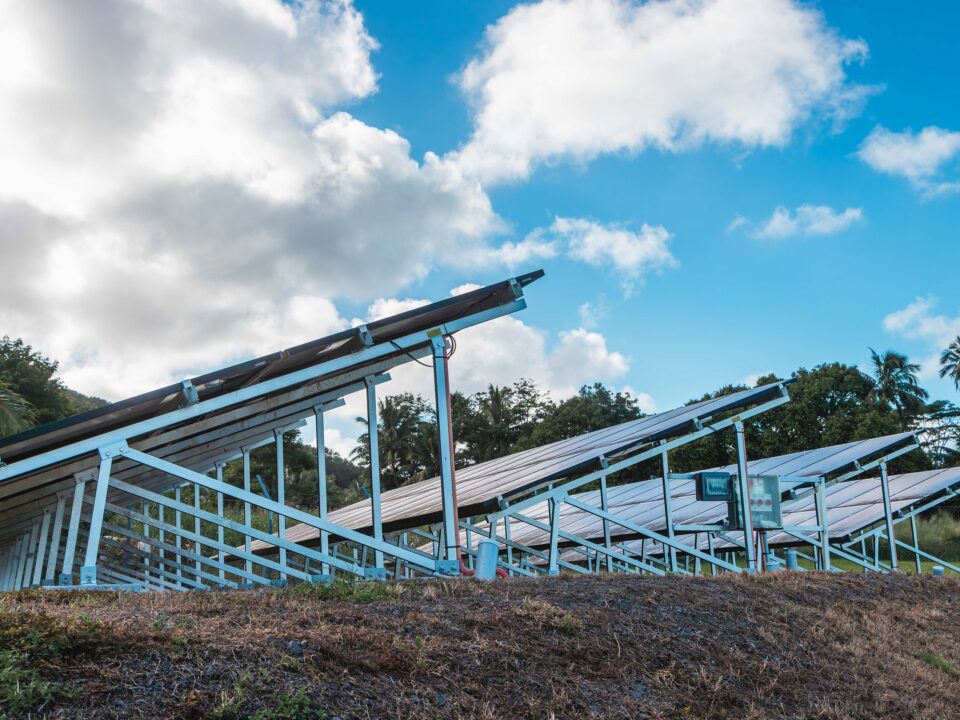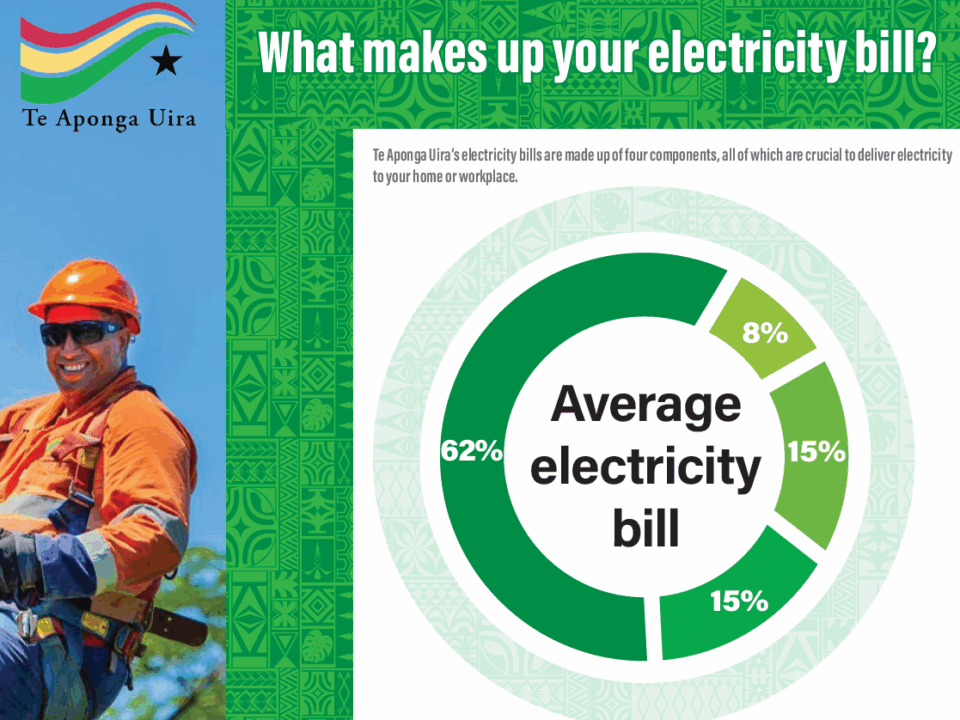
Te Aponga: a great place to grow and work
March 8, 2024
TAU to Replace Critical Infrastructure in Coming Weeks: Notice of Planned Outages to Come
May 6, 2024Te Aponga Uira (TAU) acknowledges the recent volume of queries about its invoicing system.
In October 2023, TAU introduced digital billing as part of the journey to becoming more efficient, environmentally responsible, and customer centred.
At the same time, TAU began a new billing process of reading domestic/dual meters once every three months and issuing estimated invoices in the months between. The system of manually reading every meter on the island every month was proving inefficient, with meter readers travelling up to 60 kms a day to cover all of Rarotonga. Of great concern also was the safety of meter reading staff regularly encountering (and also being attacked or chased by) aggressive dogs, having to deal with bad weather and these factors leading often to not being able to access properties.
The new system that uses estimated readings, works by looking at a customer’s electricity usage over the previous three months, calculating a daily average and from that, generating a monthly invoice. It is important to note that the actual reading in the third month catches up the total actual power used.
For instance, if a customer received estimated bills in January and February, they would receive an actual bill in March, which would “catch up” total actual power usage from January to March. The customer would then receive an estimated bill in April, calculated off the daily average of electricity from January to March and so on.
Having looked into the matter, TAU notes that the majority of queries it has received about bills recently, are from customers in Puaikura, who will have received actual readings early this month following estimates in January and February. Those estimates were based off electricity consumed over the previous three months (October, November, December), and therefore may have been lower than the actual use over the festive and humid season, explaining higher usage and therefore higher actual readings in the March bills.
Acknowledging the recent public concerns relating to estimated bills, TAU Chief Executive Officer Lesley Katoa says, “I would like to reassure our customers that we have looked into the concerns raised and are responding to customers directly if they contact us, which really is the best way to get reliable, correct information applicable to each customer. In these times of higher fuel costs, we have not increased our tariff. TAU has been shouldering the bulk of this burden and the remaining 5cents/unit fuel surcharge still does not fully cover fuel costs that continue to fluctuate at levels higher than what we saw prior to the pandemic. Notwithstanding, TAU is always looking to fine tune its processes to better meet customer needs, and we are looking at how we can improve on the estimated billing system for our domestic/dual customers, including how we handle absentee landlord properties.”
TAU will put more information on its website to clarify for all customers how the process of actual and estimated invoices works, and what to do if further clarification is required on their account. For avoidance of doubt, invoices generated from estimated readings are valid invoices to be paid by the due date specified.
TAU also encourages customers to check they are being efficient with their electricity use by turning air conditioning units and fans off when not in use, ensuring hot water boosters are not switched on when not needed, and water/pool pumps are operating efficiently.
TAU asks customers with queries about their bills to call the team on 20054, or email to enquiries@electricity.co.ck or visit the offices in Tutakimoa. The team is happy to talk through how the estimated billing works and customers are thanked for their patience as our team works hard to respond as quickly as possible to queries.
END






